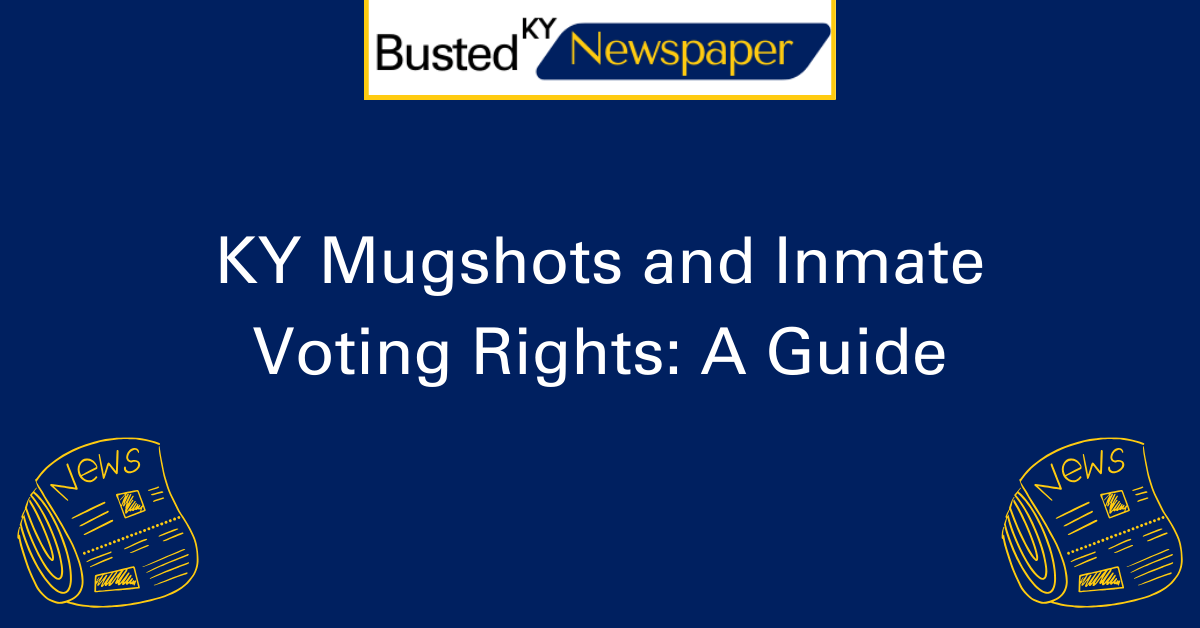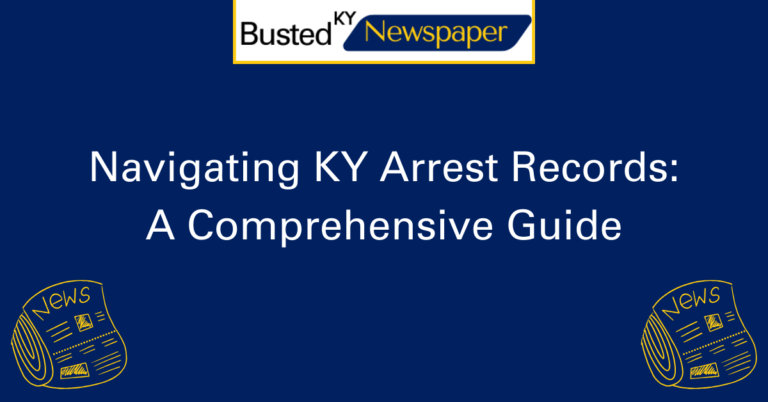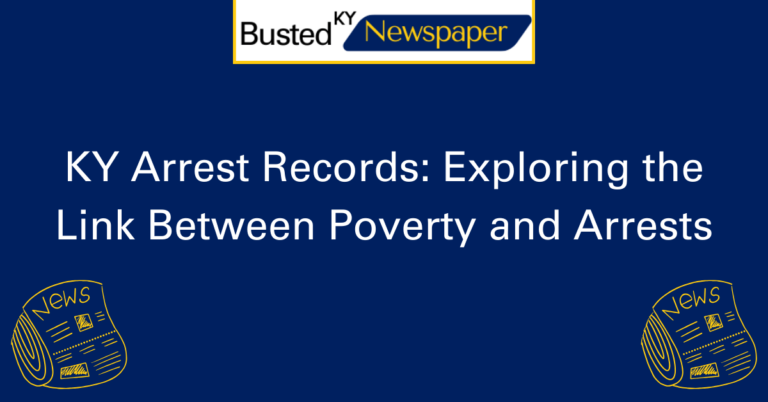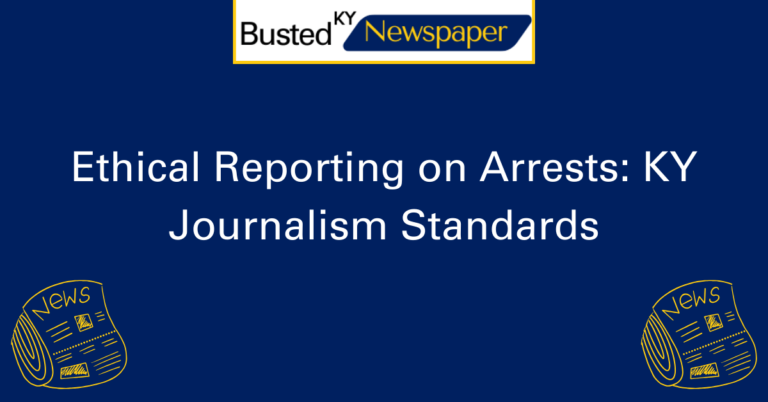KY Mugshots and Inmate Voting Rights: A Guide
Discover the intersection of criminal justice and civil rights with our comprehensive guide. This informative resource delves into the complex issues surrounding mugshots and the voting rights of incarcerated individuals in Kentucky. Whether you’re a concerned citizen, a legal professional, or simply curious about the topic, this guide provides a deep dive into the laws, policies, and controversies surrounding these important subjects.
Explore the history of mugshots and their implications on privacy rights, as well as the impact of inmate voting rights on democracy and social justice. Gain a nuanced understanding of the legal framework surrounding these issues, including recent legislative changes and ongoing debates. With expert analysis and up-to-date information, this guide aims to empower readers to engage in informed discussions and advocate for meaningful change.
Understanding the History of Mugshots
Delve into the fascinating history of mugshots and their implications on privacy rights. Explore how these photographic records evolved from simple police identification tools to become widely accessible public records. Gain insight into the controversies surrounding the release and use of mugshots, including concerns about privacy invasion, potential discrimination, and the impact on individuals’ reputations.
The Intersection of Mugshots and Privacy Rights
Examine the complex relationship between mugshots and privacy rights. Discover the legal frameworks that govern the release and accessibility of these images, as well as the ongoing debates about striking the right balance between public interest and individual privacy. Explore the challenges faced by law enforcement agencies and the judicial system in managing mugshots while safeguarding personal information.
Inmate Voting Rights and Democracy
Gain a deeper understanding of the impact of inmate voting rights on democracy and social justice. Explore the historical context and arguments surrounding the disenfranchisement of incarcerated individuals. Examine the debates on whether denying voting rights to inmates is a necessary consequence of their criminal convictions or a violation of their fundamental rights as citizens.
The Legal Framework Surrounding Mugshots and Inmate Voting Rights
Explore the laws and policies that shape the release, use, and accessibility of mugshots. Understand the legal basis for the publication of these images and the potential consequences for individuals‘ privacy. Investigate the evolving landscape of inmate voting rights, including recent legislative changes and ongoing legal battles.
Advocating for Meaningful Change
Empower yourself to engage in informed discussions and advocate for meaningful change regarding mugshots and inmate voting rights. Stay up-to-date with the latest developments, legislative proposals, and court rulings. Discover ways to support organizations and initiatives that aim to address the challenges and controversies surrounding these issues, ultimately working towards a more just and equitable criminal justice system.
FAQ’s
Mugshots pose a significant threat to privacy rights as they are easily accessible online and can perpetuate lasting reputational damage, even for individuals later proven innocent. The public dissemination of these images raises concerns about the balance between law enforcement transparency and safeguarding an individual’s right to privacy.
Do mugshots affect employment opportunities?
Mugshots can have detrimental effects on employment prospects as employers increasingly rely on online background checks. The mere presence of a mugshot, irrespective of the legal outcome, can lead to biased perceptions, potentially limiting job opportunities for individuals who have been arrested.
In Kentucky, incarcerated individuals are barred from voting during their time in prison, a policy rooted in the disenfranchisement of those convicted of felonies. This exclusion raises questions about the fairness and equity of denying certain citizens their right to participate in the democratic process.
What is the importance of inmate voting rights?
The significance of inmate voting rights lies in the broader context of democracy, civic engagement, and social equality. Advocates argue that restoring these rights can contribute to rehabilitation by fostering a sense of responsibility and civic duty among incarcerated individuals, challenging the narrative of permanent exclusion from political participation, and promoting a more inclusive society.
Yes, there are ongoing debates and legislative changes surrounding inmate voting rights. Some argue for the complete restoration of voting rights for all individuals, while others believe that certain restrictions should remain in place. Legislative changes can vary from state to state and are often influenced by public opinion and political factors.







